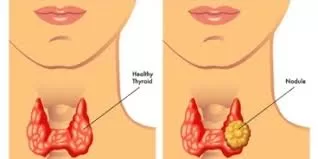WHO Director-General Dr Tedros Adhanom Ghebreyesus presented his Award for Global Health to the Prime Minister of Barbados and two scientists for their contributions to advancing global health at the Seventy-seventh World Health Assembly.
The Director-General’s Award for Global Health, established in 2019, goes to Her Excellency, Mia Mottley, Prime Minister of Barbados, for her leadership in climate action and health and her work as the Chair of the Global Leaders Group on Antimicrobial Resistance.
“Prime Minister Mottley’s exemplary leadership in fighting for a more equitable, just and sustainable world is inspiring. WHO considers climate change to be the greatest health threat facing humanity. Her tireless efforts for climate action help protect the health of all peoples, now and in the future,” said WHO Director-General, Dr Tedros Adhanom Ghebreyesus. Prime Minister Mottley received the award on 26 May in the lead up to the World Health Assembly.
Professor Katalin Karikó and Professor Drew Weissman of the University of Pennsylvania, have also been awarded for their outstanding contributions to the development of mRNA vaccines for COVID-19 at the opening of the World Health Assembly on 27 May.
“Professors Karikó and Weissman played a key role in alleviating the burden of COVID-19 and saved lives during the pandemic,” said Dr Tedros. “Their leadership in this field has the potential to play a critical role in improving health worldwide.”
Prime Minister Mia Mottley is the Eighth Prime Minister of Barbados. She became the first woman to occupy the high office in 2018, with the largest majority in the history of the country. PM Mottley was re-elected in 2022, winning all 30 seats in the House of Assembly a second time. Prime Minister Mottley currently also holds the portfolios of Minister of Finance, Economic Affairs and Investment. In addition to multiple regional and international roles, PM Mottley is also Chair of the World Health Organization’s Global Leaders Group on Antimicrobial Resistance. She has received multiple accolades for her strong voice in favor of sustainable policies in the context of climate change and other global challenges.
Professors Karikó and Weissman were awarded the Nobel Prize in Physiology or Medicine in 2023. Their discovery “fundamentally changed our understanding of how mRNA interacts with our immune system,” the Nobel prize panel wrote.
Professor Karikó is a professor at University of Szeged in Hungary and adjunct professor of neurosurgery at the Perelman School of Medicine, University of Pennsylvania. She is former senior vice president at BioNTech SE, Mainz, Germany, where she worked between 2013-2022. For four decades, her research has been focusing on RNA-mediated mechanisms with the goal of developing in vitro-transcribed mRNA for protein therapy.
Professor Drew Weissman is Roberts Family Professor in Vaccine Research and Director of the Penn Institute for RNA Innovation. He is a Professor in the Department of Medicine and Director of Vaccine Research in the Infectious Diseases Division at the Perelman School of Medicine at the University of Pennsylvania.
Professor Weissman is a physician, scientist, and pioneer in the science of immunology, with major contributions to the field. Notably, Professor Weissman, together with Professor Karikó, discovered a novel nucleoside-modified mRNA platform that bypasses adverse immunologic response.












